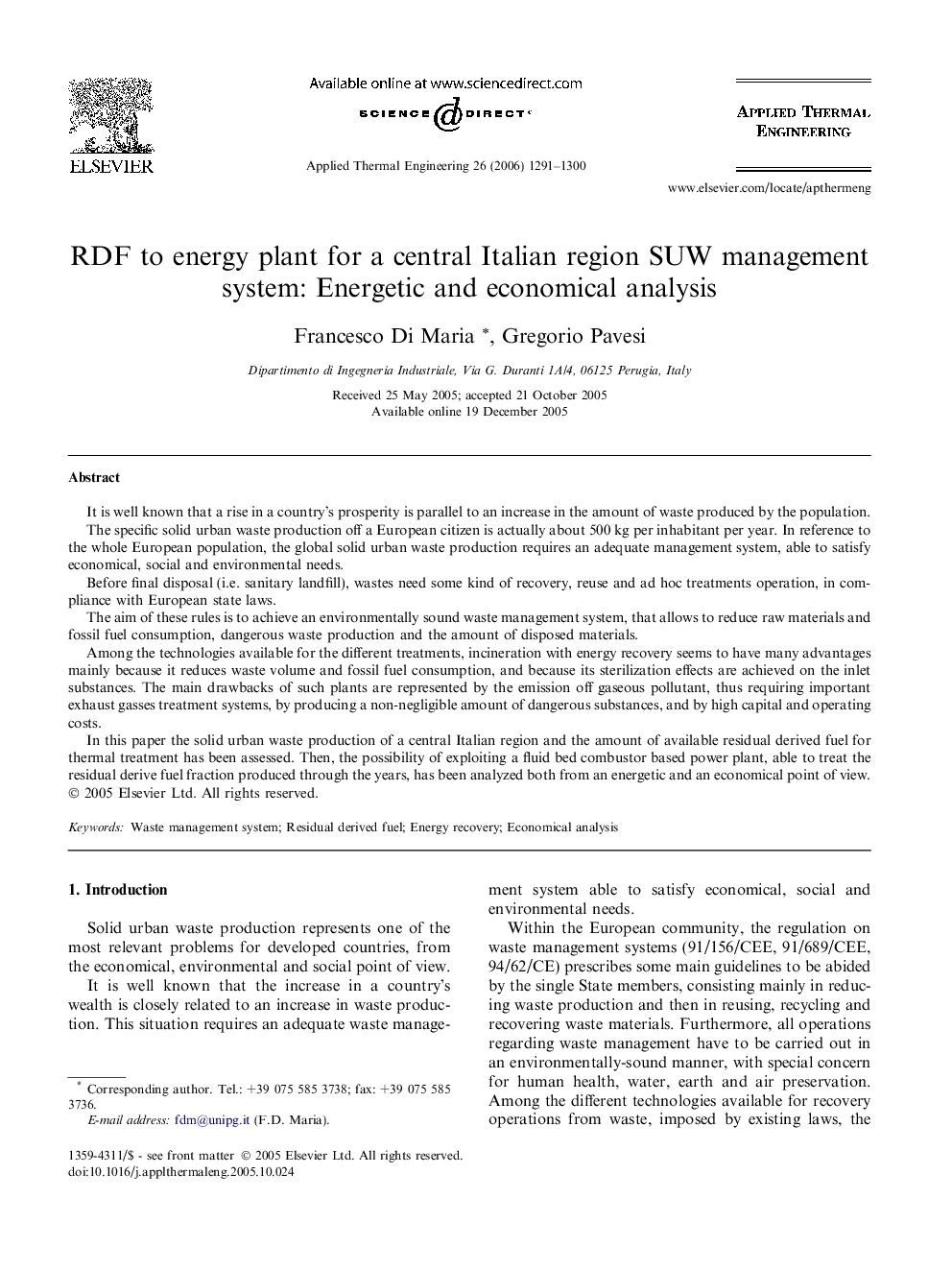| Article ID | Journal | Published Year | Pages | File Type |
|---|---|---|---|---|
| 649260 | Applied Thermal Engineering | 2006 | 10 Pages |
It is well known that a rise in a country’s prosperity is parallel to an increase in the amount of waste produced by the population.The specific solid urban waste production off a European citizen is actually about 500 kg per inhabitant per year. In reference to the whole European population, the global solid urban waste production requires an adequate management system, able to satisfy economical, social and environmental needs.Before final disposal (i.e. sanitary landfill), wastes need some kind of recovery, reuse and ad hoc treatments operation, in compliance with European state laws.The aim of these rules is to achieve an environmentally sound waste management system, that allows to reduce raw materials and fossil fuel consumption, dangerous waste production and the amount of disposed materials.Among the technologies available for the different treatments, incineration with energy recovery seems to have many advantages mainly because it reduces waste volume and fossil fuel consumption, and because its sterilization effects are achieved on the inlet substances. The main drawbacks of such plants are represented by the emission off gaseous pollutant, thus requiring important exhaust gasses treatment systems, by producing a non-negligible amount of dangerous substances, and by high capital and operating costs.In this paper the solid urban waste production of a central Italian region and the amount of available residual derived fuel for thermal treatment has been assessed. Then, the possibility of exploiting a fluid bed combustor based power plant, able to treat the residual derive fuel fraction produced through the years, has been analyzed both from an energetic and an economical point of view.
